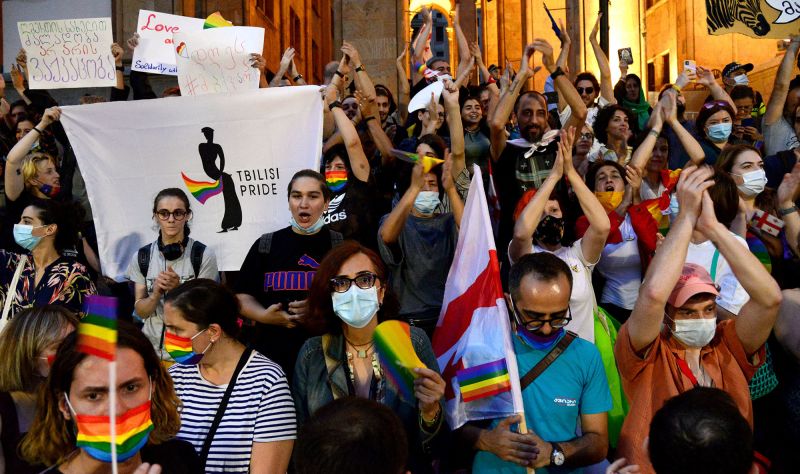Georgian parliamentary speaker Shalva Papuashvili said in a Facebook post on Thursday that he had signed into law a “family values” bill curbing LGBT rights, just weeks before a high-stakes parliamentary election.
Lawmakers from the ruling Georgian Dream party last month approved the bill, which bans gender transitions and could outlaw pride marches and displays of the LGBT rainbow flag. The party says the law is necessary to protect Georgia’s Orthodox Christian church from outsiders.
President Salome Zourabichvili, a critic of the ruling party, had refused to sign the bill into law. Georgian Dream and its allies in parliament had enough seats to overcome her opposition.
Georgian LGBT activists say that the law is an attempt by Georgian Dream to boost support among conservative voters ahead of the Oct. 26 election, in which the party is seeking an unprecedented fourth term in power.
Some Western countries have criticized the bill, casting it as part of what they say is a turn towards authoritarianism and alignment with Russia in country that had mainly leaned towards the West since the breakup of the Soviet Union.
Opinion polls show that Georgian Dream remains the country’s most popular single party against a divided opposition, though it has lost ground since 2020, when it won almost 50% of the vote and a narrow majority in parliament.
Georgian Dream, founded by the country’s richest man, has also enacted a law requiring groups that receive funding from abroad to register as foreign agents, which its opponents say is modelled on legislation used to criminalize dissent in Russia.
Relations with Moscow have overshadowed politics for decades in Georgia, which has been a candidate to join NATO and the EU.
Moscow supports separatists in two ethnic regions who broke away from Tbilisi’s rule in wars in the 1990s, and Russian forces defeated Georgia in a brief war in 2008. Georgian Dream argues that its opponents would bring a return to war, and says it would pursue more stable relations with Russia.

